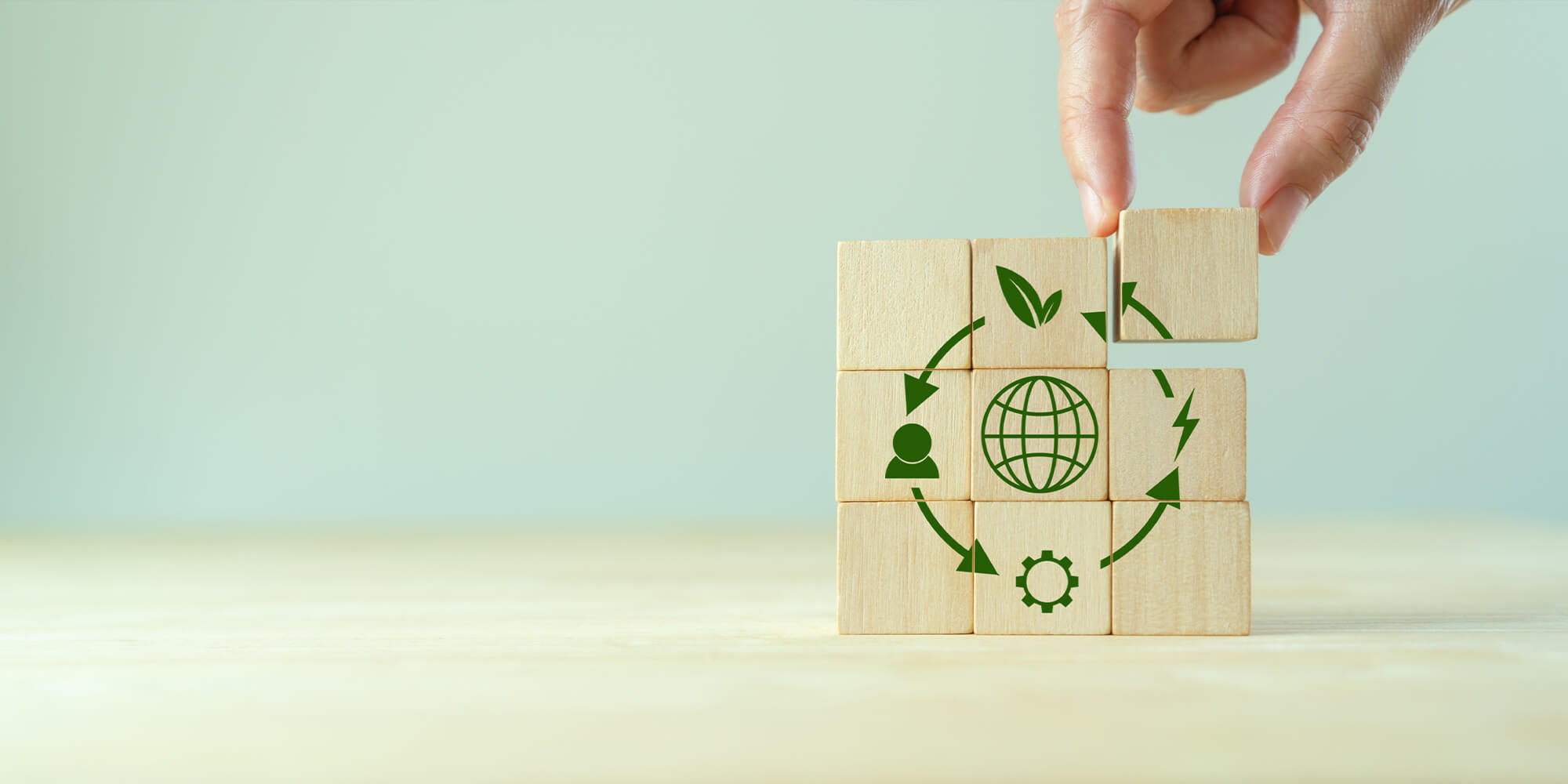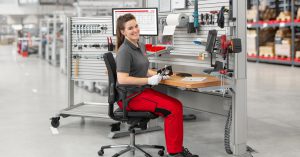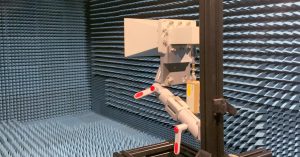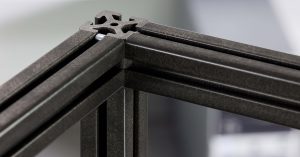From using renewable resources to make sustainable products to developing new digital solutions and applying ergonomics to prevent health problems – sustainability in production is exceptionally multifaceted.
Everybody is talking about sustainability these days – not just in Germany, but all over the world. Above all, the effects of global warming have very clearly demonstrated that companies need to make protecting natural resources and curbing climate-damaging emissions a top priority. Industry and production have a dual responsibility in this regard. Although the manufacturing industry has reduced the volumes of pollutants it emits, its high energy requirements and the associated emissions of greenhouse gases continue to pose major challenges. Equally, however, it is industry, with all its expertise and creativity, that is best placed to develop new, sustainable solutions for the future.
The concept of sustainability dates back to the 18th century and has its origins in the German forestry industry. At that time, it was decided that forestry management should never involve chopping down more wood than could grow back naturally. The word “sustainability” has additional implications, since the verb “to sustain” also means “to withstand” or “to endure”. In this sense, sustainability also means using resources in a way that ensures nature can withstand this use and regenerate. However, the concept of sustainability has grown and now goes even further, focusing not only on environmental sustainability, but also on social and economic sustainability. The term triangle of sustainability is often used in this context. All three areas are also covered by the UN Sustainable Development Goals, which were adopted in 2015.
Using Industry 4.0 to achieve sustainable production – focusing on future technologies
People often associate the term sustainability with environmental sustainability, which involves protecting both the environment and the climate. As there is an absolute abundance of possibilities for achieving sustainability in production, we are going to limit ourselves to just two examples here – digitalisation and resource-saving products. In discussions about sustainability over recent years, there has been an increasing focus on the role played by digitalisation. For example, Plattform Industrie 4.0 published its impulse paper entitled “Sustainable production: actively shaping the ecological transformation with Industrie 4.0”. In 2022, the focus of Hannover Messe was on digitalisation and sustainability. In announcing this area of focus, the organisers stated: “To maintain competitiveness, industrial companies have to protect the environment; to do so, they must significantly reduce CO2 emissions. How? By investing in digitalised, energy-efficient and climate-friendly production processes.” According to the Bitkom study “The digital economy’s impact on the climate”, the accelerated deployment of digital technologies could cut up to 64 million metric tons of emissions in Germany alone. This figure represents 17 percent of the planned reduction in CO2 emissions set by the 2030 climate target.
A reduction of 33 million metric tons of CO2 could be achieved solely through use of digital twins.
Companies are also confident in this respect. According to a study conducted at last year’s Hannover Messe, 81 percent of the German companies surveyed were of the opinion that Industry 4.0 can contribute towards sustainable production. A reduction of 33 million metric tons of CO2 could be achieved solely through use of digital twins in production. Digital twins are virtual models of real products and processes that can cover the complete product cycle. They can be used to precisely predict potential malfunctions and deviations during the production process. What’s more, it is possible to “run through” potential manufacturing adjustments as part of a simulation, without having to make actual changes. The collaboration between item and Halocline is similar – assembly work benches can be planned using virtual reality, for example. Through this collaboration, work benches designed using the item Work Bench Configurator are transferred to the Halocline virtual reality software and put to the test using a VR headset. In both cases, digital networking means that on-site meetings and the business travel associated with such meetings are no longer required – and this also helps the environment. According to the study, we have automation to thank for the remaining 31 million metric tons of CO2 that can be avoided during production.
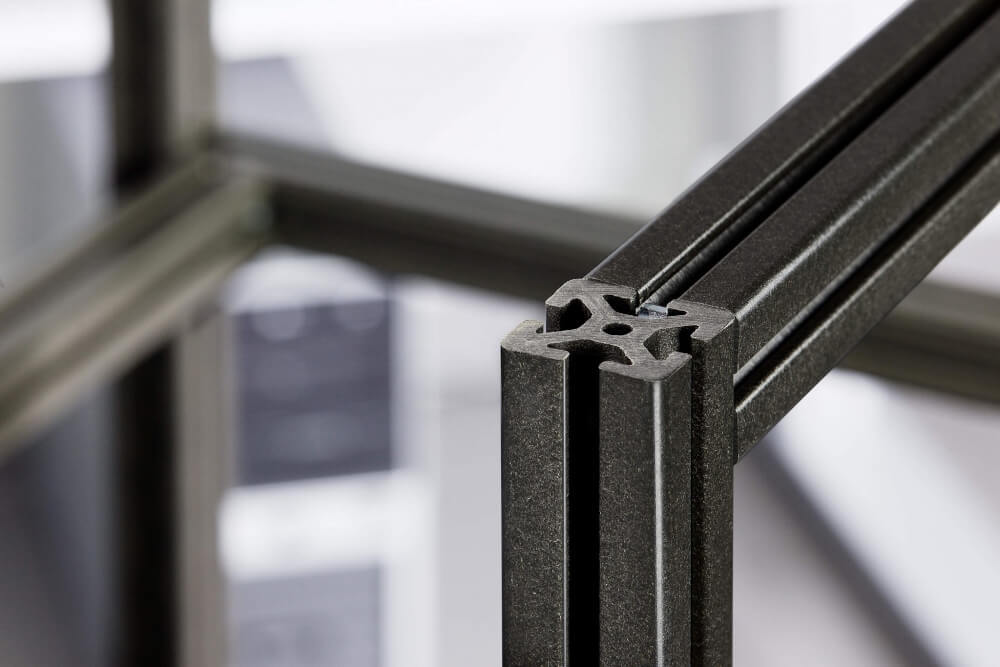
More sustainable factory equipment engineering – thanks to Profile KH
Using products made from sustainable components is another element of sustainable production. For instance, Profile KH from item is made from an innovative composite material that combines thermoplastic (polypropylene) with wood from sustainably managed forests that has been awarded the PEFC label. Profile KH has a total wood fibre content of 70 percent, so almost three quarters of it consists of a renewable resource. The PEFC label guarantees, amongst other things, that the amount of wood felled never exceeds the amount that grows back. Sustainable wood therefore takes us directly back to the origins of the concept of sustainability. Compared to an aluminium profile, producing this primary raw material also uses 76 percent less primary energy. What’s more, the sustainable Profile KH has a CO₂ equivalent of just 3.6 kg – this represents a 91 percent reduction in CO2 compared to aluminium profiles. Since Profile KH is a niche product, unfortunately there is currently no recycling loop yet the way there is for aluminium. The market for used WPC (WPC = wood plastic composite) is very much in its infancy. Internal recycling currently dominates. This is where manufacturers take back, grind up, melt down and re-extrude their products.
The item modular building kit principle offers its very own form of sustainability. Since constructions can be altered and taken apart as often as desired, Profiles KH – just like all other item profiles – are never actually ‘used up’.
To reduce the need for resources as much as possible, the aim should, of course, always be to achieve a circular economy, and item is working on new solutions in this area. Moreover, the item modular building kit principle ultimately offers its very own form of sustainability. Since constructions can be altered and taken apart as often as desired, Profiles KH – just like all other item profiles – are never actually “used up”. If a construction is no longer needed, it can simply be taken apart and the profiles reused for new projects. This is exactly what large-scale business customers do – they dismantle old structures and use the profiles for new applications. What’s more, Profiles KH can also be combined with conventional aluminium profiles. Aluminium profiles and Profiles KH both have their own particular benefits and areas of application. For example, sustainable Profiles KH are the perfect choice when lightweight materials, electrical insulation or transparency for electromagnetic waves are called for. Aluminium profiles, on the other hand, are recommended when heavy loads are involved.
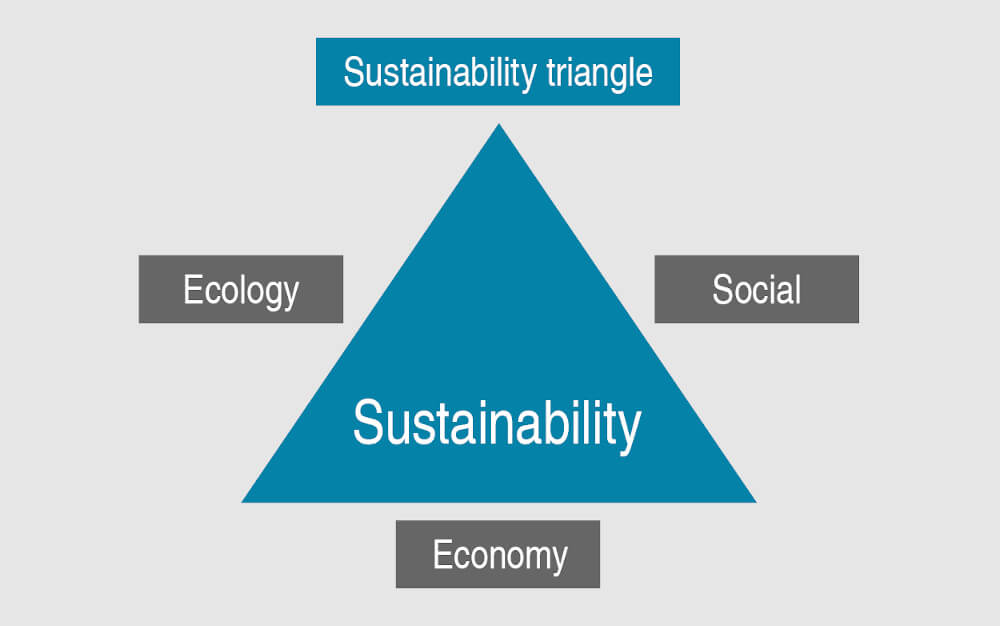
Social sustainability in industry – supply chains and ergonomics
Just like the other areas of sustainability, social sustainability also covers many different aspects, including equal opportunities in education, gender equality, fair working conditions, occupational health and actively tackling world hunger. The effects on industry and production can be clearly shown by means of the German Supply Chain Act, which came into force on 1 January 2023. This now imposes certain obligations on German companies, requiring them to maintain an overview of the entire supply chain and react immediately if they become aware of any potential violations. This means companies have due diligence obligations, not only in respect of their own operations, but also for their business partners and suppliers. Although the Supply Chain Due Diligence Act applies only to companies with at least 3000 employees in 2023, its scope will be extended to companies with at least 1000 employees in 2024.
Ergonomic work bench design in manual production is also part of social sustainability.
Companies have a direct influence on social sustainability in their own production operations. They can exert this influence in various ways, e.g. by improving the internal feedback culture, strengthening team spirit, offering flexible working-time models (insofar as the particular job allows for this), offering mobility schemes, promoting diversity and, last but not least, through health and safety measures. Ergonomic work bench design in manual production is part of health and safety. Since ergonomics is centred around every employee’s personal requirements, staff can work in ideal conditions and develop to their full potential. For example, the item ergonomic Work Bench System means the height of work benches and chairs can be flexibly adjusted, and material/tool supply can be customised, too. By preventing uneven strain and unnecessary movements, the number of sick days can be reduced – and staff become more productive and motivated, too. Employees are also very appreciative of an employer who genuinely cares about their health. Social sustainability is therefore also a crucial aspect in long-term – i.e. sustainable – employee loyalty and a fixed element of corporate social responsibility.
Economic sustainability – a vital topic for business
The third element in the triangle of sustainability can be used to illustrate just how closely linked environmental, social and economic sustainability are. It is only possible to achieve the aim of a sustainable economy when neither people nor the environment are exploited. Profit is therefore not the only thing that matters – the well-being of nature and our fellow human beings, both now and in the future, is also crucial. Focusing on growth alone, with no consideration of global injustice or the increasing scarcity of resources, takes us backwards, rather than forwards into the future. Industry is ideally placed to make a vital contribution in this regard by ensuring production is sustainable. It is in this context that a relatively new term has been coined in Germany – the word “enkelgerecht” means “sustainable”, but is also a nod to our responsibility for future generations (the German word “Enkel” means “grandchildren”). Based on the categorical imperative of Immanuel Kant (1724-1804) (“Act only according to that maxim whereby you can, at the same time, will that it should become a universal law”), German-American philosopher Hans Jonas (1903-1993) stated: “Act so that the effects of your action are compatible with the permanence of genuine human life.”
Are you interested in digitalisation and what the future holds for mechanical engineering? Then we have something that’s right up your street! Simply subscribe to the item blog by completing the box at the top right.

